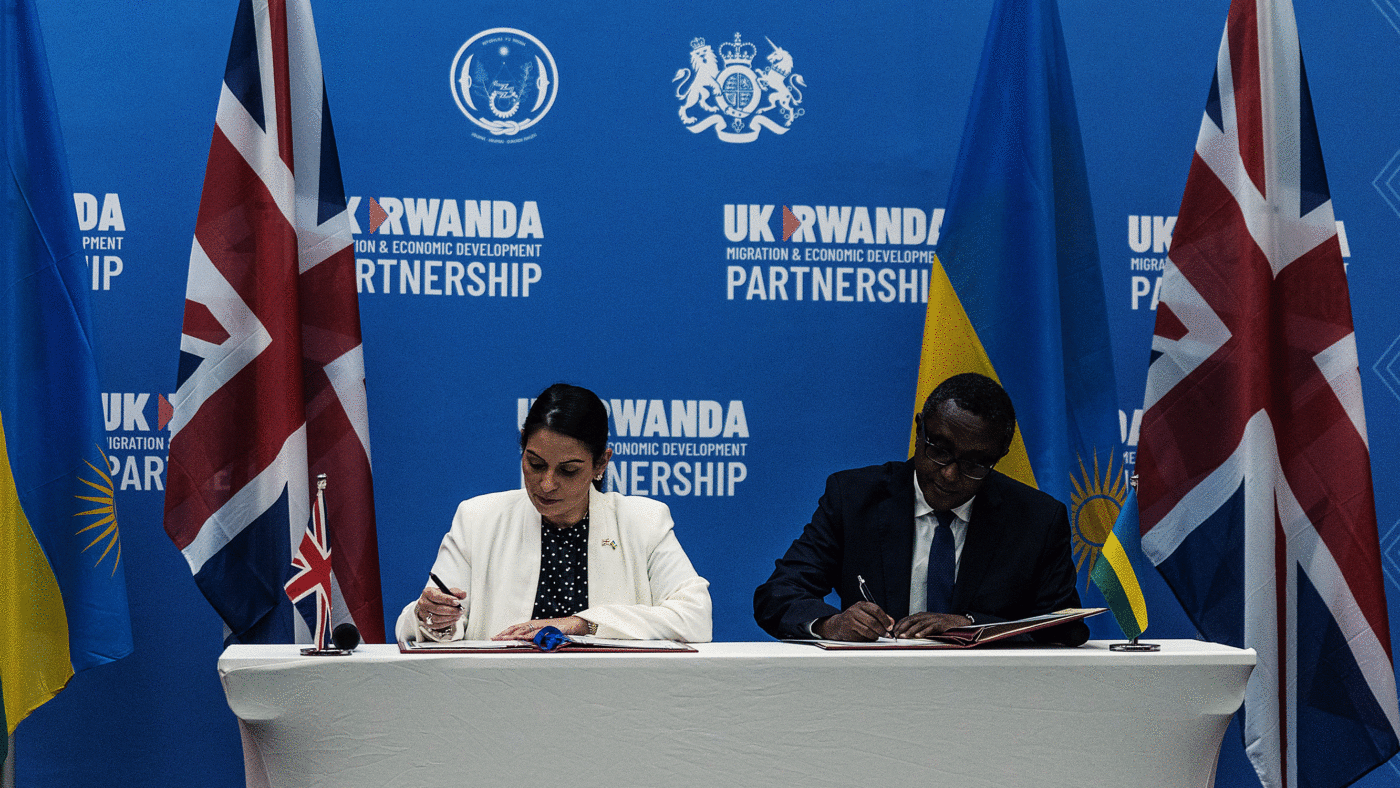With ‘partygate’ fines hogging the headlines, the Government has thrown the British public a piece of red meat with a plan to send asylum seekers to have their claims processed in Rwanda, 4,000 miles away from the UK. Many will see this as a ‘dead cat’ – although the plan has been in the works for some time – but it’s one that requires analysis, given the impact it will have on asylum seekers and the change of tack it marks in British immigration policy.
The Government clearly believes that it has read the country’s mood on this. According to recent polling, 45% of Britons think there is too much immigration and, perhaps even more importantly for the Prime Minister, 77% of Conservative voters think that the Government’s current approach to Channel crossings is too soft.
However, even if this performative gesture from the Home Office may briefly placate voters, it will not actually assuage any of their concerns in the long run. Bear in mind that voters’ two principal objections tend to be the cost of the current asylum system, and the number of small boats making their way across the Channel.
On the first point, Boris has partly justified the deal with Rwanda on the basis that the current system is costing the taxpayer £5 million a day. This would suggest that the new deal would save money – but that looks vanishingly unlikely. The Australian model, which the Government’s deal is based on, has cost around £4.3 billion since July 2013. Divide that by the number of asylum seekers within the system, and you get £1.38 million per asylum seeker. Tory MP David Davis calculated that if the cost of the Australian system was applied to the 23,500 migrants who have crossed the channel this year alone, it would equal a gargantuan £32.4 billion bill for the taxpayer – 23 times higher than the current system. Small wonder, then, that another Tory veteran, Andrew Mitchell, said it would be cheaper to house asylum seekers in the Ritz. It is surely very difficult for the Government to justify spending such a vast sum during a cost of living crisis.
On the second point, the PM suggests this plan will help deter ‘vile people smugglers’, but research suggests that it’s not ‘pull factors’ of the destination country, but conflict that is the single most significant factor associated with asylum claims in Europe. These are desperate people fleeing for safety – if they are willing to risk life and limb to make the dangerous channel crossing, the chance of a flight for processing in Rwanda is unlikely to deter them. Indeed, this is what happened in Australia, as evidence provided to the Home Affairs Committee highlighted. In the first year of Australia’s offshore processing policy, more people arrived by boat than at any either time. In fact, in the first three months so many people arrived that the forecast capacity of their detention centres was outstripped.
On top of those arguments, there are also serious worries about how suitable a destination Rwanda is. In 2021, the Government published its own concerns about Rwanda’s human rights record, including those about allegations of arbitrary detentions and torture. The statement also noted that Rwanda has failed to provide support to victims of trafficking – so how can it be a suitable place to send asylum seekers, many of whom will have been victims of trafficking themselves?
The track record in the Australian system has also been appalling. According to the Nauru files, which have detailed the trauma faced by those sent to the island, asylum seekers have been subject to sexual assault, beatings and many have self-harmed. Over half (51%) of these reports involved children, even though they only make up 18% of all those detained on the island. Is this really the sort of treatment the UK should be trying to emulate?
But perhaps the most compelling argument of all is that it simply won’t work. In our high-velocity news cycle the sugar rush of a bit of a boost in public opinion will probably have worn off by the time the local elections arrive. In the longer term, as well as putting vulnerable people at serious risk of mistreatment, this policy will corrode public trust when voters realise it hasn’t fixed any of the problems with the asylum system.
Click here to subscribe to our daily briefing – the best pieces from CapX and across the web.
CapX depends on the generosity of its readers. If you value what we do, please consider making a donation.


